Harvesting the sun at Troy Farm
- Rural Energy for America Program,
- Stories
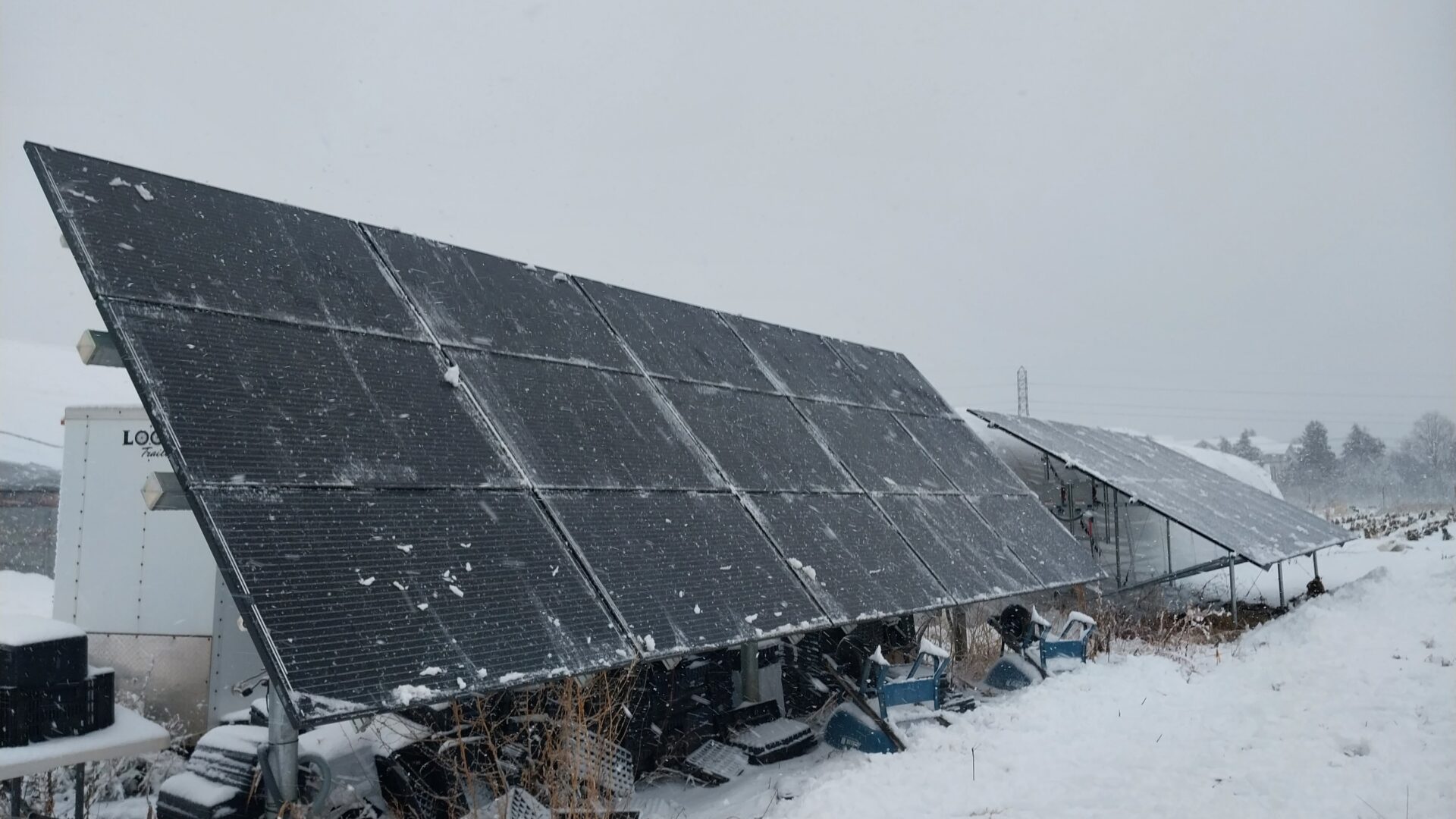
On the north side of Madison, Wisconsin, urban farmers are harvesting more than just organic vegetables. Situated amidst 26 acres of green space and walking trails lies Troy Farm, an organic vegetable farm operated by local nonprofit, Rooted. The farm grows food for donation to local food pantries, runs educational programs and events, and offers space and support for small-scale farmers to raise crops of their own.
“Our mission is: connecting the community through food, land, and learning,” shared Farm Director Paul Huber. Solar energy powers the farm’s efforts to create a healthy, equitable, and sustainable Madison.
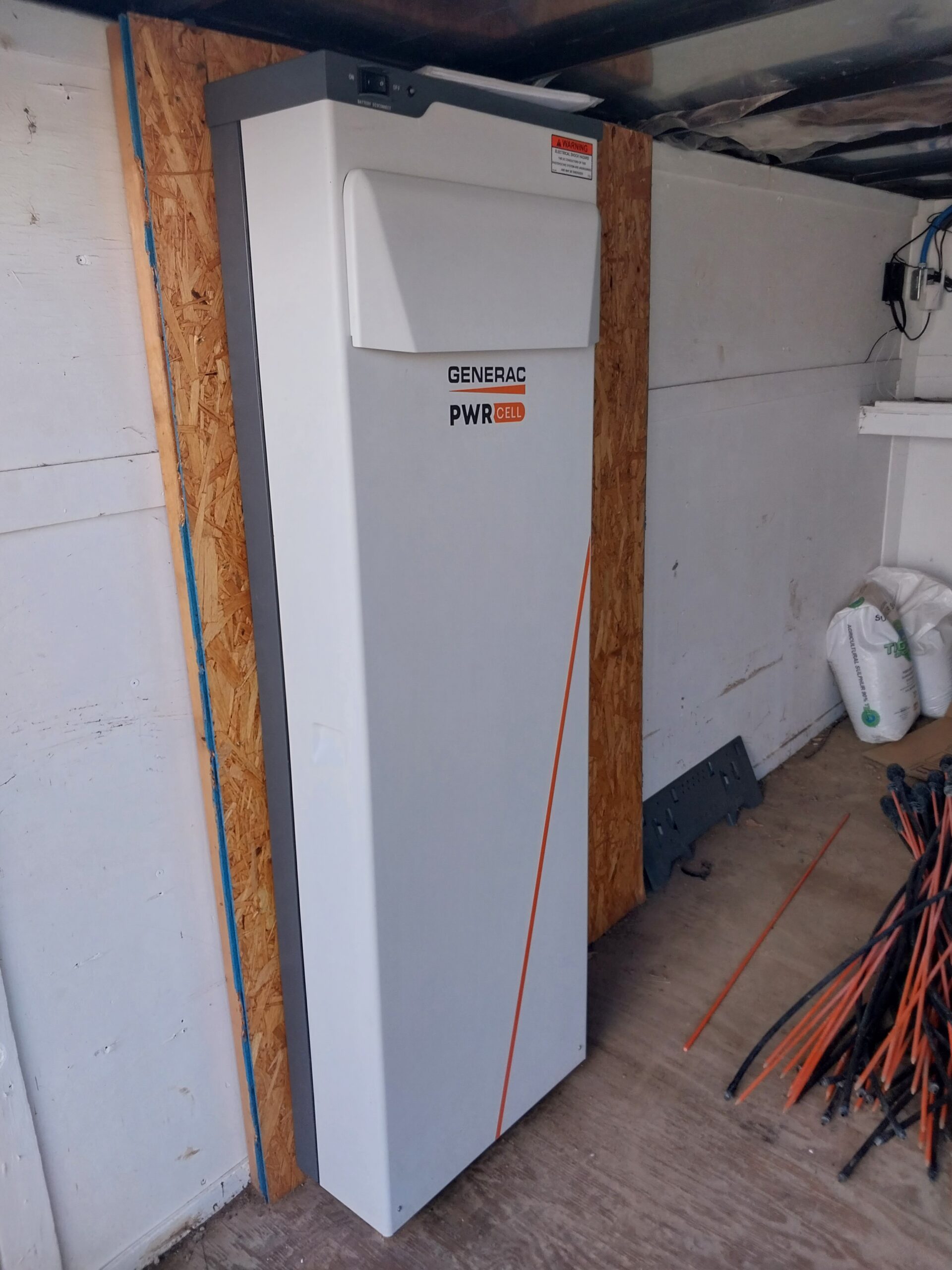
Paul took over the growing operation at Troy Farm in 2019. He quickly ran into logistical challenges. “When I arrived it was a pretty rough situation. We did not have any way to cool anything and the electricity that we had on site was a good 600, 700 feet away from the farm itself,” he shared. As a result, vegetables in need of storage were being lugged to a cooler in a nearby building. When the organization lost access to the cooler altogether, Paul saw solar as a solution.
Facing restrictions that prevented them from running electricity directly to the farm field. It desperately needed a reliable source of power. So, the farm turned to an off-grid solar array. “It was good to be able to have electricity on-site, but … we quickly outgrew our capacity for both solar production and battery storage.”
As they sought a better solution, the land trust where Troy Farm resides came around to the idea of connecting their system to the grid. So, in 2023, Paul and his team began searching for local, state, and federal incentives to help fund an expansion that would meet their needs.
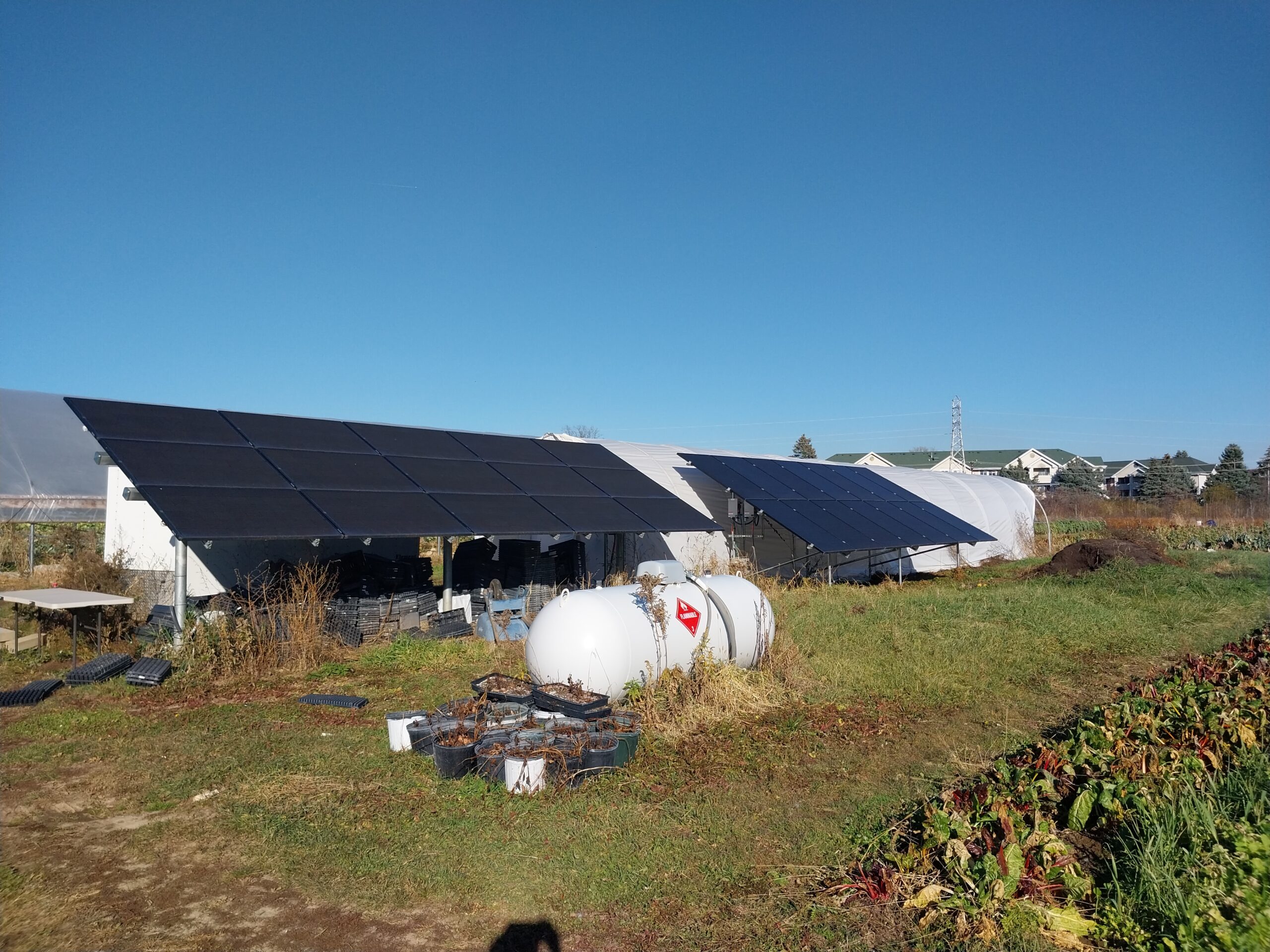
Nonprofit organizations like Troy Farm are tax-exempt. This means they can’t directly benefit from federal solar tax credits because they do not pay taxes. In 2022 the Inflation Reduction Act (IRA) changed this. It makes it possible for nonprofits to receive a direct cash payment in place of a tax credit. “We got a chunk of money from them so that was great.” The organization received $12,000 through direct pay.
In addition to federal benefits, Troy Farm was able to add more than $60,000 in funding through state and local programs. They received Wisconsin’s Focus on Energy and Energy Innovation Grants. The farm also participated in the city of Madison’s MadiSUN program and RENEW Wisconsin’s Solar for Good initiative. The assistance they received fully covered the cost of the project.
The farm’s new grid-tied system has set them up for success. “Now we are in a position where we have stable power, we have a little bit of battery backup in case of power outage, and we are producing enough that we have a net zero [energy bill].”
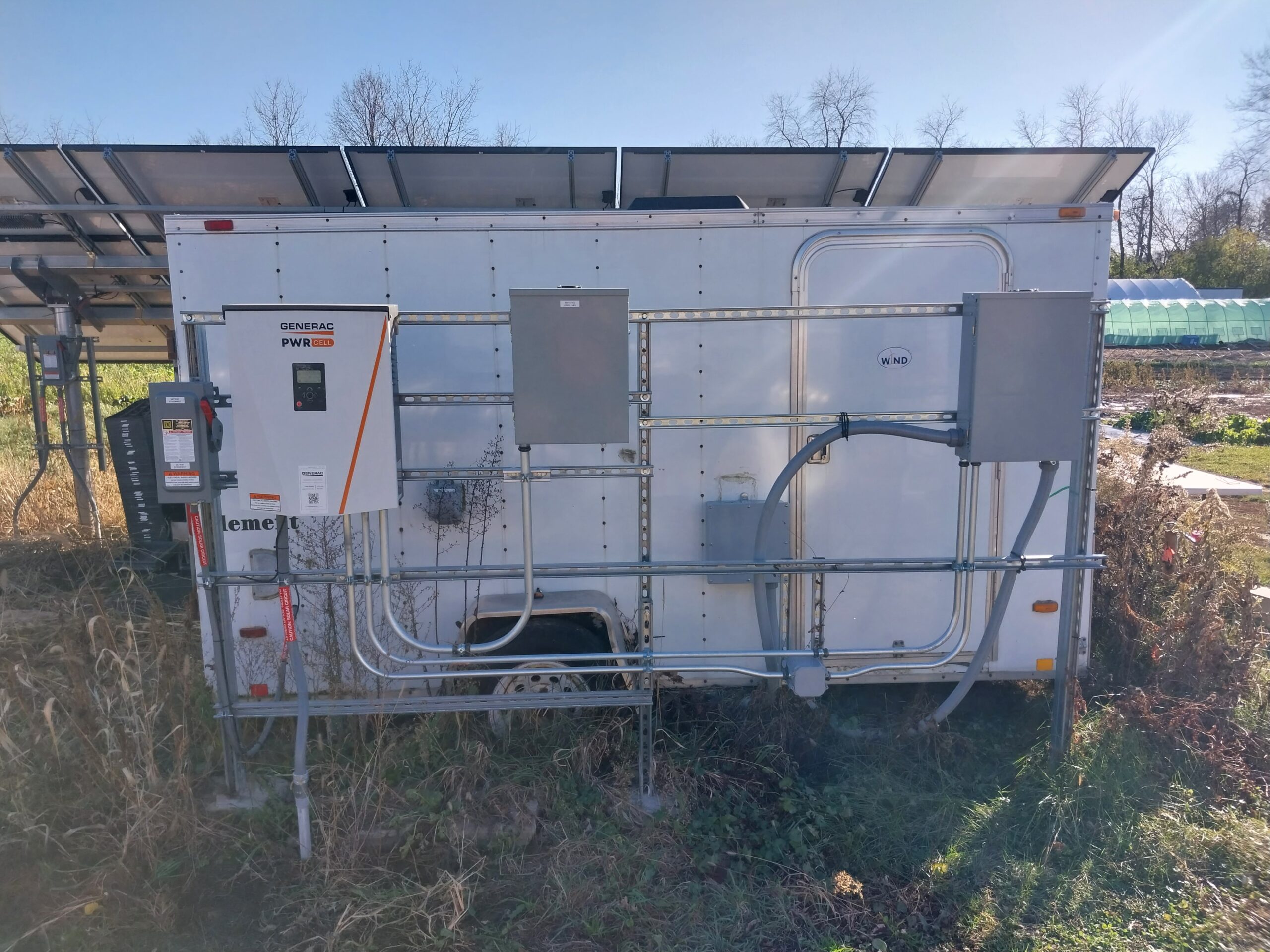
The impact of reducing energy expenses on the farm has been felt across the organization. “We are using the fact that we do not have that cost to reduce our fundraising burden,” said Paul. “[There are] not a lot of grants out there to pay for your electricity so that is a huge financial benefit for the nonprofit.”
Rooted’s new solar array provided a solution to another challenge they were facing. As an urban farm located within the city of Madison, “we were using city water to water our crops and had water bills of $10,000,” Paul said. Having a dependable power source on-site meant they were able to drill a well for irrigation and disconnect from city water. “We needed the electrical capacity to run the pump so now not only [are we] not paying that water bill, we are not even paying the electrical bill for the pump.” Paul said they built that into their capacity calculations.
“It was hard enough for us to operate a single nonprofit farm on this system that had no infrastructure and no electricity on-site … Now we have greenhouses and buildings, a pump in a well that is big enough to supply water to several different farms, and two coolers on-site that we are powering.”
The additional amenities and expanded resources also serve the growing partners that share their land. This includes Sei and Melissa Kidau of Youth Empowerment Initiatives, Yusuf Bin Rella of TradeRoots, Kim Fruin of FarmHer Greens, members of Occupy Madison, and the Troy Composting Project.
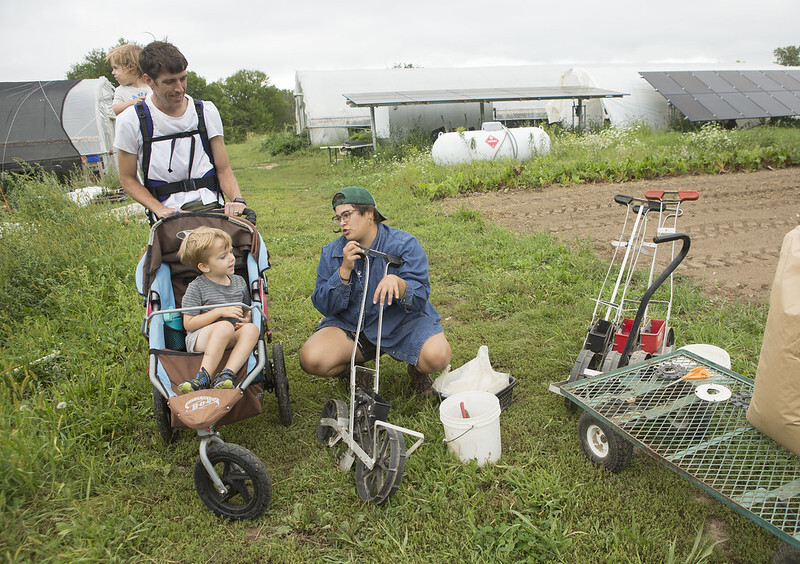
The future of the farm is bright. “Having that solar array and all that infrastructure there really opens that space up.” Local food that can be grown at scale and accessed by a city bus has been a boon for the north side neighborhood. With solar power at its back, Troy Farm can continue to grow and maximize its impact.
By harvesting the power of the sun the farm has amplified its mission and spread its roots across communities. “The impact has been exponential because it is not just the community that Troy Farm works with and serves. It is the community all these other farmers work with and serve too.” If you’d like to learn more about going solar and how you can take advantage of incentives, download SUN’s Go Solar guide.
Get the latest on solar straight to your inbox.
Fight for your solar rights.
Everyone has the right to go solar. Spread the sunshine nationwide and in your local community by taking action, joining events, and more.